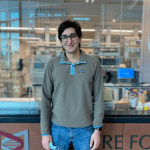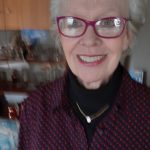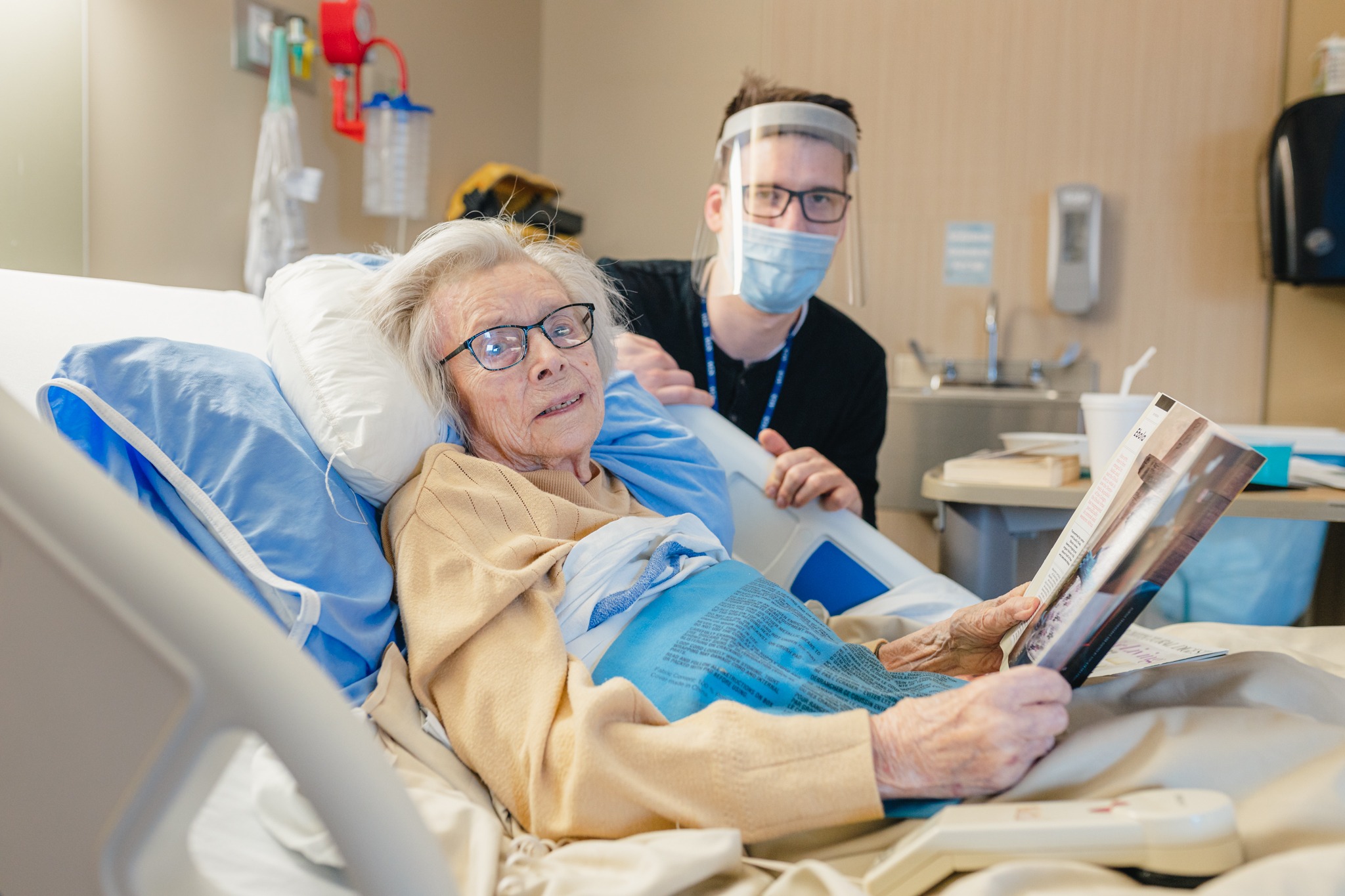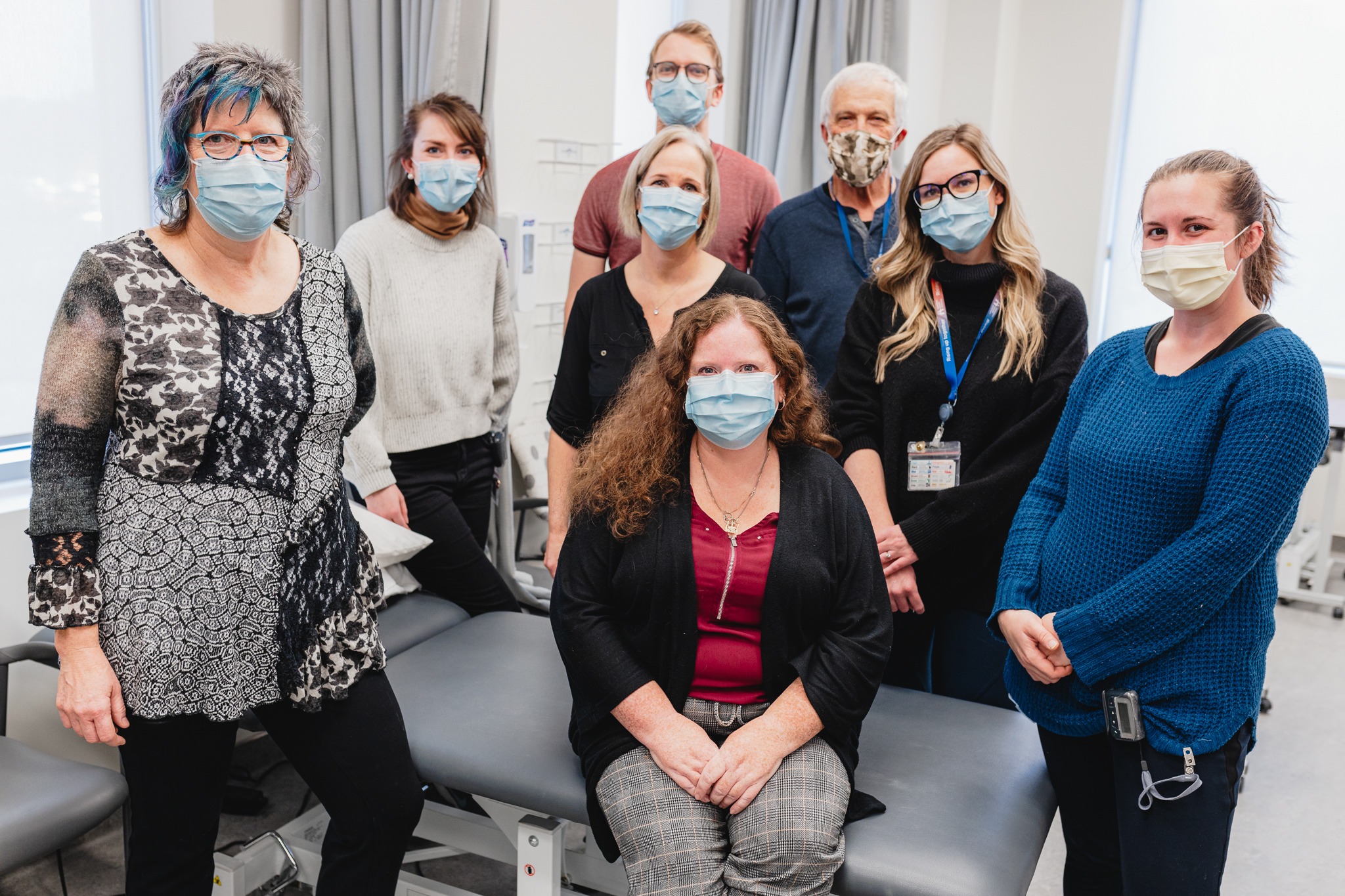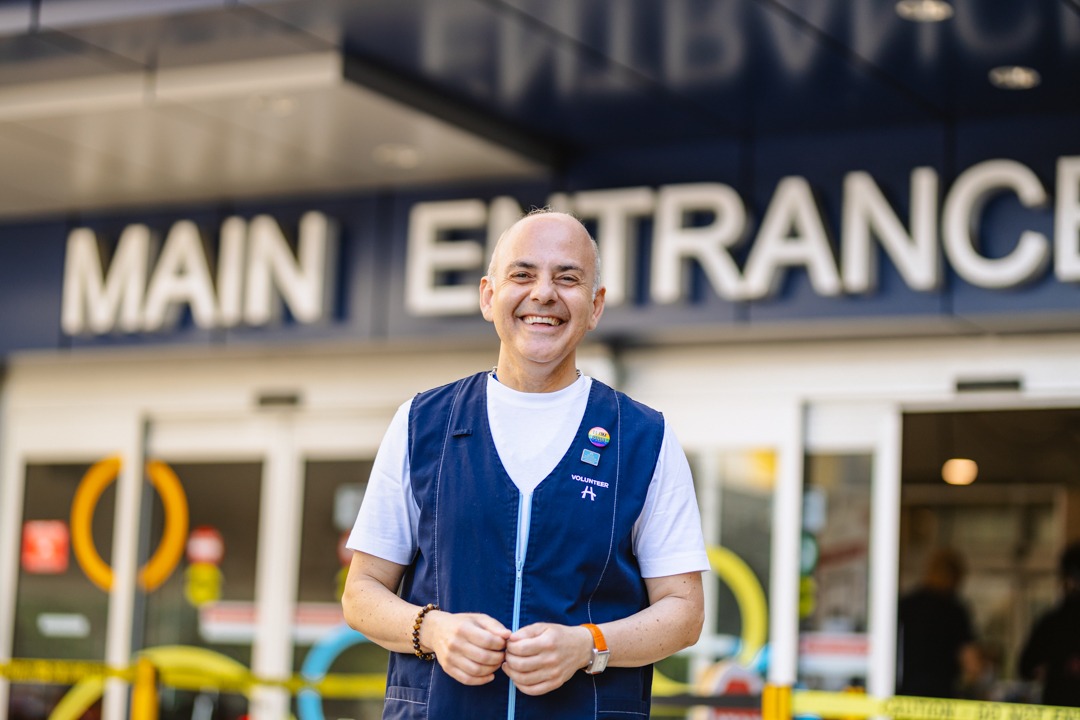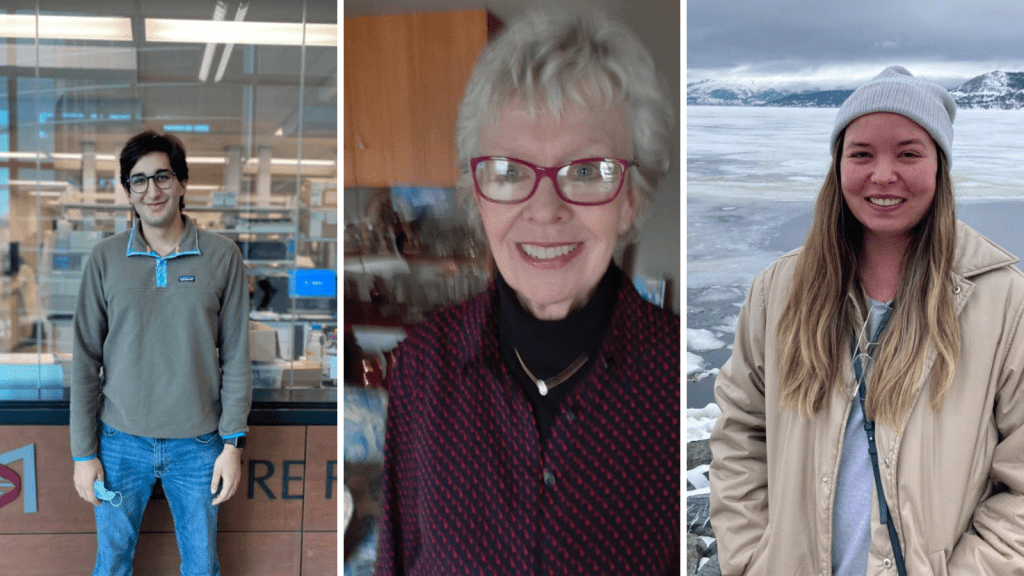
Volunteers are back at HHS! Meet three people happy to be returning in-person
At Hamilton Health Sciences (HHS) we’re fortunate to have more than 1,300 volunteers supporting our patients, their families and our staff. They’re an essential part of what we do.
Some volunteer programs have continued to run in a modified way during the pandemic while others have had to stop completely. Everyone is eager to return to our hospital sites for in-person volunteering when it’s safe to do so.
“We are very excited to be welcoming back volunteers to the organization. We know they have a tremendous impact on the patient experience and service delivery,” says Morgan Richardson, manager of volunteer resources, who has developed a gradual reintegration plan with her team, starting with key placements across the organization.
Today marks the first day volunteers are back at HHS. Meet three HHS volunteers who contribute to the health and well-being of our patients.
Junaid Habibi
Junaid Habibi, 21, began volunteering at HHS in 2019 at Juravinski Hospital and Cancer Centre in the Hospital Elder Life Program (HELP).
What inspires you to volunteer your time?
Coming from a background of refugees, I am grateful for the unconditional and caring support my family received from our community when they migrated to Canada. The importance of giving back to my community and supporting those in need, like how we were supported, has been instilled in me from those days. One of the ways I give back to my community and support those in need is by volunteering with HHS.
In my role in HELP, I am also reminded often about my grandparents and how they took care of me when my parents had to work long hours to sustain us. As they’ve aged, I’ve come to appreciate how it has become my turn to care for them. The patients I encounter are elderly, and through volunteering with HELP, I know that my role can have a real impact in helping other grandparents too.
“I know that my role can have a real impact in helping other grandparents too.”
What does your role as a HELP volunteer entail?
My role involves conversing with elderly patients that stay with Hamilton Health Sciences as inpatients. The hospital can be an unfamiliar and frightening place for some people. When elderly patients must undergo a medical procedure and stay at the hospital for extended periods of time, some become susceptible to delirium, which can involve confusion and changes in their awareness of the world around them. My role is to prevent this by talking and reminiscing with patients, encouraging rest and the consumption of food and fluids, guiding them through simple exercises, and engaging in activities such as reading and playing board games. As a team leader, I also trained other volunteers joining the program.
What did you miss most when volunteer activities stopped because of the pandemic?
I missed being able to see patients in person. Although HELP transitioned to a phone program, there was always something special about seeing a patient in person and engaging with them in the same room. Some things that I used to do, such as playing board games and cutting food for them, were not possible during the pandemic. Importantly, non-verbal communication showing reassurance, empathy, and care was not possible. However, I’m still glad that I could still volunteer with HELP during the pandemic, when many elderly hospital patients were more isolated than usual.
What do you enjoy most about your role?
There’s so much to enjoy! If I had to choose, I’d say the most enjoyable part of being a HELP volunteer is how you can engage with people from diverse walks of life and learn about them. The diversity you experience amongst patients when being a HELP volunteer is unparalleled, and each patient has a unique and interesting story to tell. I also love how this conversation with patients is critical in fulfilling my role in aiming to prevent delirium.
Looking back, what is your fondest memory volunteering at HHS?
My fondest memory is volunteering with a particular patient before the pandemic. She had suffered multiple strokes and was feeling pretty down. However, by visiting her every week, I slowly learned about her life and what brings light to it. One of the things I learned during a visit was that she enjoyed listening to music from the 60s and 70s. From then on, I played some songs she enjoyed from back in the day and this really helped in improving her mood and starting visits on a good note. I actually became a fan of rock music from the 60s and 70s because of visits with her and started collecting vinyl!
The volunteering programs at HHS are amazing opportunities for people to get involved in volunteerism while being in fulfilling and impactful roles that are absolutely integral to the amazing things that happen at HHS. I highly encourage everyone to check out the many available roles, especially now with the in-person transition!
Margaret Moore
Margaret Moore, 69, started volunteering at HHS in the 1990s, providing prenatal tours to soon-to-be parents. In 2017, she started volunteering at Juravinski Hospital and Cancer Centre in the Guiding People Services (GPS) program.
What inspires you to volunteer your time?
My primary reasons for volunteering are:
1. Because my husband has received excellent medical care by the doctors and nurses at the Juravinski Cancer Centre and I wanted to give back;
2. To meet new people;
3. To contribute to my community;
4. To learn new skills.
What does your role as a GPS volunteer entail?
I greet visitors entering the hospital and offer my assistance. I escort patients and visitors to their destinations, offer assistance with a wheelchair, call a taxi, or stay with people until their loved one arrives. I also give directions to various locations within the hospital. I assist staff when requested and I have trained high school GPS volunteers.
What did you miss most when volunteer activities stopped because of the pandemic?
I missed assisting and talking to the people coming into the hospital and also the bonds I have formed with many Juravinski employees.
“I see my role as being a good listener as we walk to their appointment location and engage in a friendly conversation.”
What do you enjoy most about your volunteer role?
I enjoy my one-on-one time with patients. Some people are apprehensive coming into a hospital or may be getting a sensitive diagnosis. I see my role as being a good listener as we walk to their appointment location and engage in a friendly conversation.
I am constantly impressed by how I am treated by nurses, doctors and other hospital staff. They are so friendly, congenial and respectful. I feel part of a team.
Looking back, what is your fondest memory volunteering at HHS?
I have so many good memories. My orientation to Juravinski was done by Charlie Collura, an HHS volunteer and former director of the HHS Volunteer Association. I remember his signature pink tie. The day was fun, he was so resourceful and very positive. Each day I volunteer, I strive to live up to what he instilled in me.
I have good memories of Christmas, with school choirs performing in the hospital lobby, bringing joy to patients, visitors and staff alike. Another memory was a big surprise for all when a police officer on horseback rode up to the hospital front doors – what fun! The officer did this for several weeks.
Lucie White
“I believe that the extra time I have to give in my day can be used to make someone’s day better.”
Lucie White, 31, started volunteering at HHS in 2015. She volunteers with the Hospital Elder Life Program (HELP) at Hamilton General Hospital.
What inspires you to volunteer your time?
I believe that the extra time I have to give in my day can be used to make someone’s day better. My grandfather had Alzheimer’s Disease and this program spoke to me personally.
What does your role as a HELP volunteer entail?
My role is to interact with hospitalized older adults with delirium symptoms, or who have issues with orientation. By working through a variety of “interventions” with these patients, we aim to keep them mentally and physically active in an attempt to minimize any further functional or mental decline.
Some of the interventions include having orienting conversations with the patient, revisiting or promoting exercises the patient has been given by the clinical team, and encouraging patients to maintain their food and fluid intake while in hospital. We volunteer and interact in tandem with the clinical team and the patient’s support system.
What did you miss most when volunteer activities stopped because of the pandemic?
Fortunately, we were still able to connect with patients via telephone, but the biggest difference was not seeing our patients in person. I missed the in-person interaction with the patients, their families, support networks, and their circle of care in the hospital. I felt as though I was making my biggest impact when physically in the hospital.
What do you enjoy most about your role?
The part I enjoy most is how hands-on it is. I love building trust with patients and their families or support systems, and the feeling that I am making a direct difference and having a positive effect on their hospital stay. Even giving a family member the opportunity to grab a cup of coffee or something to eat while I interact with their loved one is fulfilling.
Looking back, what is your fondest memory volunteering at HHS?
I think my fondest memory would be with some of the patients who have stayed in the hospital for a length of time. Being able to witness and follow their journey from week to week is very special, and I feel fortunate to be a part of that.

